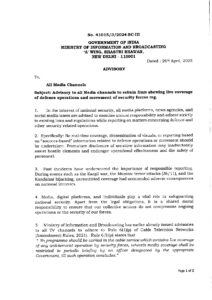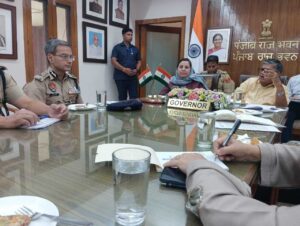Book offers insights to shaping today’s daughters into confident women of tomorrow
New Delhi, Sep 15 (PTI) TV personality Shamoly Khera wanted to highlight the factors hindering women’s growth and how these barriers can be broken. She wrote a book where every chapter begins with a letter – a note to daughters of the world that aims to shape them into the confident women of tomorrow.
In her book “Letters to Daughters of Tomorrow: Breaking Stereotypes to Unleash her Potential”, Khera mentions the stereotypes that women have been facing through generations – years of conditioning under the veil of tradition and culture that needs to be conquered to make space for the new women of tomorrow.
The book gives insights into how a woman can overcome everyday obstacles that her own conditioning creates, as well as challenge the stereotypical perceptions of those around her.
“With this book, I want to bring to light the factors, both external and internal, that have been hindering women’s growth until now and how we can break these barriers to create newer paths for women to lead upfront. We can make a palpable difference only if we speak about these issues openly and transparently,” the author says.
She says she wished these letters “had been written to me when I was a young woman waiting at the horizon for opportunities”.
She goes on to add: “I wish someone had told me back then about the powerful ways in which I could create opportunities for myself and other women – ways that we are about to discover in this book.”
The subjects of the letters include a range of topics – from ‘protect your dreams’ to ‘stop chasing perfection’, and ‘don’t be afraid to want more’ to ‘don’t let culture tell you not to argue’.
Khera refers to the current generation of working women as the ‘transition generation’ – the one that will pave the way for more women to go beyond expected roles and do justice to newer ones that deserve their talent and potential.
The goal of this book, she says, isn’t to stir a rebellion or make us the dominant half but to find an equal ground with equal opportunities.
In the book, published by Rupa, Khera also mentions India’s labour force participation rates (LFPR), which is one of the lowest in the world.
The LFPR essentially tells the total number of women of working age who are seeking work; this includes those who are currently employed and those who are unemployed but seeking employment.
She, however, adds that this does not mean Indian women are sitting idle.
“In fact, it’s far from that. Women in India are working very hard. However, a majority of work that they do is ‘unpaid work’. This category of work includes taking care of the children and elders in the family along with tending to the household chores, among myriad other things.”
Khera says the biggest lesson she has learnt along the way is that if you are silent while in disagreement with the events in your life, you are unknowingly supporting the event, even though in a passive way.
“Silence is abetting the environment in letting things happen as they are. Silence is weakness. Silence to ‘let things be’ against one’s own will must be considered self-sabotage, almost criminal. Not speaking up is not equivalent to disagreeing with someone’s opinion; not speaking up is equivalent to assisting others’ decision to action,” she says.






